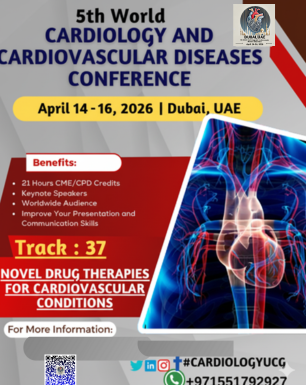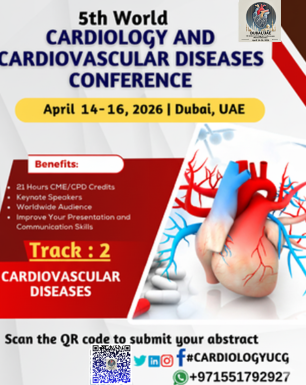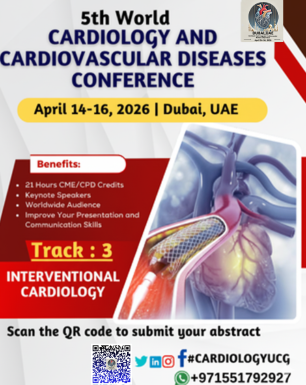



Sub Topics: Coronary Artery Disease, ...


Keynote Topics:
Targeted Therapies in Cardiovascular Disease: Focus on drugs that specifically target molecular pathways, such as those involved in inflammation, oxidative stress, and endothelial dysfunction. These therapies offer the potential for more effective and precise treatment with fewer side effects compared to traditional therapies.
Gene Therapy and Regenerative Medicine: Explore how gene therapies and stem cell-based approaches are being investigated to repair damaged cardiac tissue, restore heart function, and prevent further cardiovascular damage.
Novel Antiplatelet and Anticoagulant Agents: Recent developments in antiplatelet and anticoagulant therapies aim to prevent blood clots more effectively while minimizing the risk of bleeding, particularly in high-risk patients with conditions like atrial fibrillation or coronary artery disease.
Heart Failure and Novel Drug Classes: In the context of heart failure, new drug classes such as SGLT2 inhibitors and neprilysin inhibitors are revolutionizing treatment paradigms, helping to improve symptoms and prolong survival rates in heart failure patients.
Biologic and Biosimilar Drugs: The role of biologics, such as monoclonal antibodies, in treating conditions like atherosclerosis and hypertension, and the growing availability of biosimilars, which offer more affordable alternatives to these therapies.
Precision Medicine and Pharmacogenomics: The application of pharmacogenomics in cardiovascular medicine is making it possible to tailor drug treatments based on a patient’s genetic profile, leading to more personalized and effective therapy regimens.
Regulatory and Safety Considerations: The approval and monitoring process for novel cardiovascular drugs, including the challenges in ensuring drug safety, efficacy, and long-term outcomes in diverse patient populations.
Future Directions and Challenges: Consideration of the future of cardiovascular drug development, including the integration of artificial intelligence and machine learning in drug discovery, and the need for continuous research into the long-term impact of new treatments.